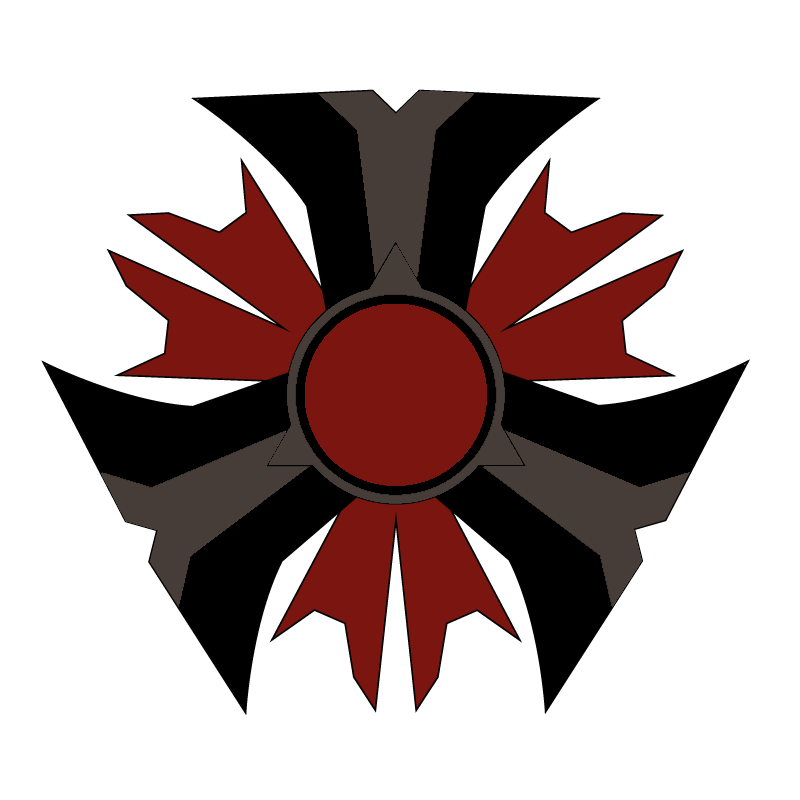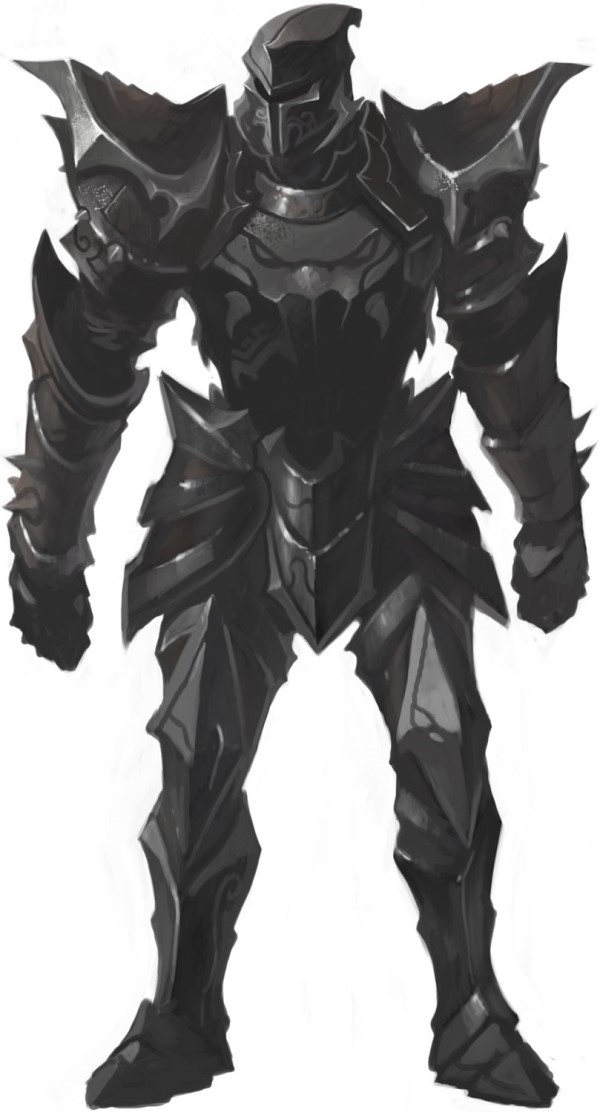Hellknights
Hellknights are the common term denoting a number of knightly orders around the world who are almost exclusively dedicated to upholding law, enforcing justice, and destroying chaotic influences. They do not concern themselves with morality, which distinguishes them from paladin orders; everything they do is in the name of law, not in the name of good or evil. Whilst every Hellknight order has its own principles and code of conduct that its members are to follow, all orders share two important philosophies: the judicial codex known as the Measure as well as the strict philosophy of the Chain.
Structure
The Hellknights have no central organisation: everything varies by order. The orders follow the structure of a military hierarchy. All orders are led by a lictor or vicar; below them, the legates serve as field marshals; the paralictors and paravicars serve as senior officers; and the maralictors and maravicars are junior officers. The rank-and-file of the orders are filled by signifers (Hellknight spellcasters), Hellknights (initiated order members), and armigers (Hellknights-in-training).
Hellknight orders
These are the major Hellknight chapters established in the world:
- Order of the Chain,
- Order of the Gate,
- Order of the Godclaw,
- Order of the Nail,
- Order of the Pike,
- Order of the Pyre,
- Order of the Rack,
- Order of the Scar,
- Order of the Scourge,
- Order of the Torrent,
- Order of the Vice.
Initiation
In order to qualify as a full member of a Hellknight order, armigers must undergo an ancient rite known as the Test. Observed by the order's lictor and all available Hellknights, the armiger must face, and defeat, a summoned devil from
Hell in single combat. Death equals failure. Upon besting the devil, the armiger is allowed to swear the order's vows and thus commit to upholding the Measure and living according to the Chain. However, the ritual of the Test is not always needed; a sworn Hellknight may vouch for someone who has slain a fiend in single combat under other circumstances, such as during battle. Swearing by the Measure, the Hellknight assures the lictor that the incident conformed to the Test's standards, and the armiger may thereafter join at the lictor's discretion.
Only those who have been successfully judged during the Test and accepted into a Hellknight order may wear their iconic armour and brandish their signature weapons.
Dogma
Hellknights live by the Measure and the Chain. The Measure is a very long codex detailing crimes, duties, and other laws; it is normative, and seeks to be a guide to a completely ordered society. The Measure is comprised by a careful selection and revision of several historical legal traditions, some known, and some unknown: for example, some passages are derived from Hell, various draconic systems from the Age of Dragons, and the legal code of Scaelor.
The Chain is a harsh philosophy that advocates self-improvement and discipline through trial. These tests can be physical or mental, such as memorising parts of the Measure, or by exposing oneself to such great duress that it would break a weaker being. On a deeper level, the Chain represents the three virtues that Hellknights are expected to live by: order, discipline, and mercilessness. Each of these virtues are connected to dual maxims.
- Order holds that Hellknights should strive to create a society of perfect, self-sustaining order that has no need for them; and that every mortal should frustrate and punish those who impede progress. As such, order is embodied by the maxims "Embrace obsolescence" and "Every soul a tyrant."
- Discipline holds that emotions are a distraction and that no progress is made without loss. It is embodied by the maxims "Emotion is a weakness" and "Execution by flame." Of course, Hellknights frequently use emotions to their advantage by utilising their enemies'. Fear is commonly utilised, and is the reason that most Hellknight orders have black and spiky armour decorated with sinister iconography.
- Mercilessness holds that compassion is damaging to civilisation and that everyone is guilty of something. Hellknights believe that every mortal being, whether they be a Hellknight or non-Hellknight, noble or commoner, or judge or criminal, are guilty of some form of transgression: as a result, no-one deserves exceptional or favourable treatment under the law. Mercilessness is embodied by the maxims "Society cannot survive mercy" and "None are innocent."
Culture
In spite of its cold, emotionless, and united philosophical foundation, each Hellknight order is highly distinct from the other, and as a universal trend, every order is dedicated to fighting one aspect of their eternal enemy of chaos itself. Likewise, the Chain is a life-long test, and in practice, many Hellknights do not conform to it absolutely.
The common perception of Hellknights varies as well. Some think that the cruel and unusual punishments of the Order of the Rack are the standard by which Hellknights operate, though this is not correct, as all other Hellknights actively distance themselves from this particular illegitimate order. Generally, Hellknight opinion depends on the impact and reputation a local chapter has had on a local community.




